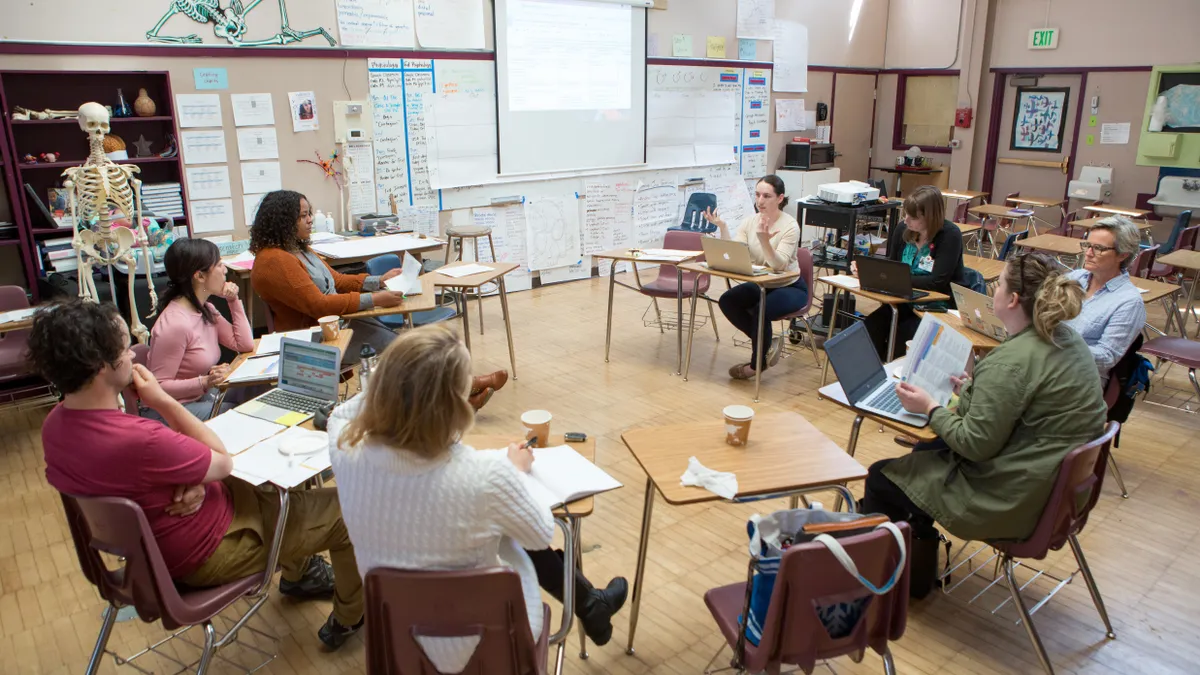Dive Brief:
-
When developing a new curriculum, one of the first resources instructional specialists can tap into are classroom educators themselves, looking at their current experiences around what’s working in-person or even remotely with students to gain insight into how certain instructional approaches may work.
-
Giving classroom teachers a chance to offer feedback before curricula or lesson plans are put in place also helps curriculum designers adjust and strengthen newly designed coursework and content before a full rollout.
-
“The classroom educators have the on-the-ground knowledge of not only recommended practices, but they also know their children and families well,” said Alissa Mwenelupembe, senior director of early learning program accreditation for the National Association for the Education of Young Children. “Classroom educators will be able to tell if a curriculum will work for the age group that they teach as well as how families will respond to it.”
Dive Insight:
When curriculum specialists work closely with classroom teachers, they have an opportunity to gain deeper insight into what works directly with students — and perhaps what doesn’t. For districts, this feedback can be valuable, allowing stakeholders to determine what tools and resources might be worth expanding and what may be time to phase out.
Before launching any new curricula, specialists may want to consider piloting a smaller rollout first. Reaching out to a select group of teachers can provide information that will help recalibrate details early.
“When a school decides to adopt a new curriculum, it would be a great idea to have a small group of teachers pilot and test it out,” said Mwenelupembe. “This not only gives the administrators a preview of how it will work more widely — it also creates buy-in, which is essential in change management.”
Instructional specialists often have classroom experience themselves and pull from that history when looking to augment instruction for learners, Miriam Plotinsky, an instructional specialist for Montgomery County Public Schools in Maryland, wrote in Edutopia. But teaching needs can change quickly over time and also vary depending on the learners themselves.
Different classrooms may require different kinds of approaches and support. Allowing current teachers to share their thoughts on new instructional tools and methods can seed on-the-ground input in plans for curricula and resources.
By partnering with teachers, instructional specialists may also find that new curriculum is adopted faster: Educators may feel some ownership in its development if their voice has been solicited and may even help to support its rollout among colleagues.
“Giving educators a preview of potential changes and the ability to weigh in with their considerations and suggestions not only makes the curriculum stronger, but it can also lead to wider, easier adoption,” Mwenelupembe said.





 Dive Awards
Dive Awards







